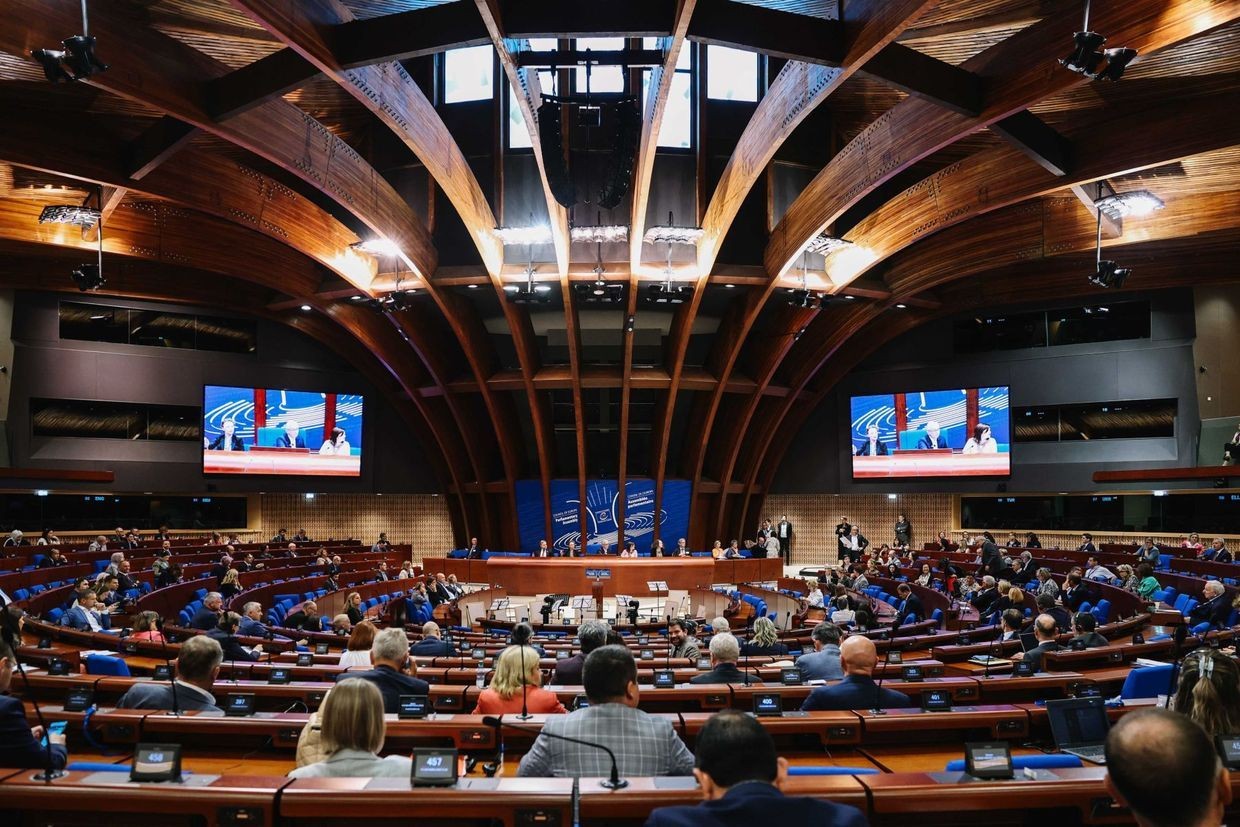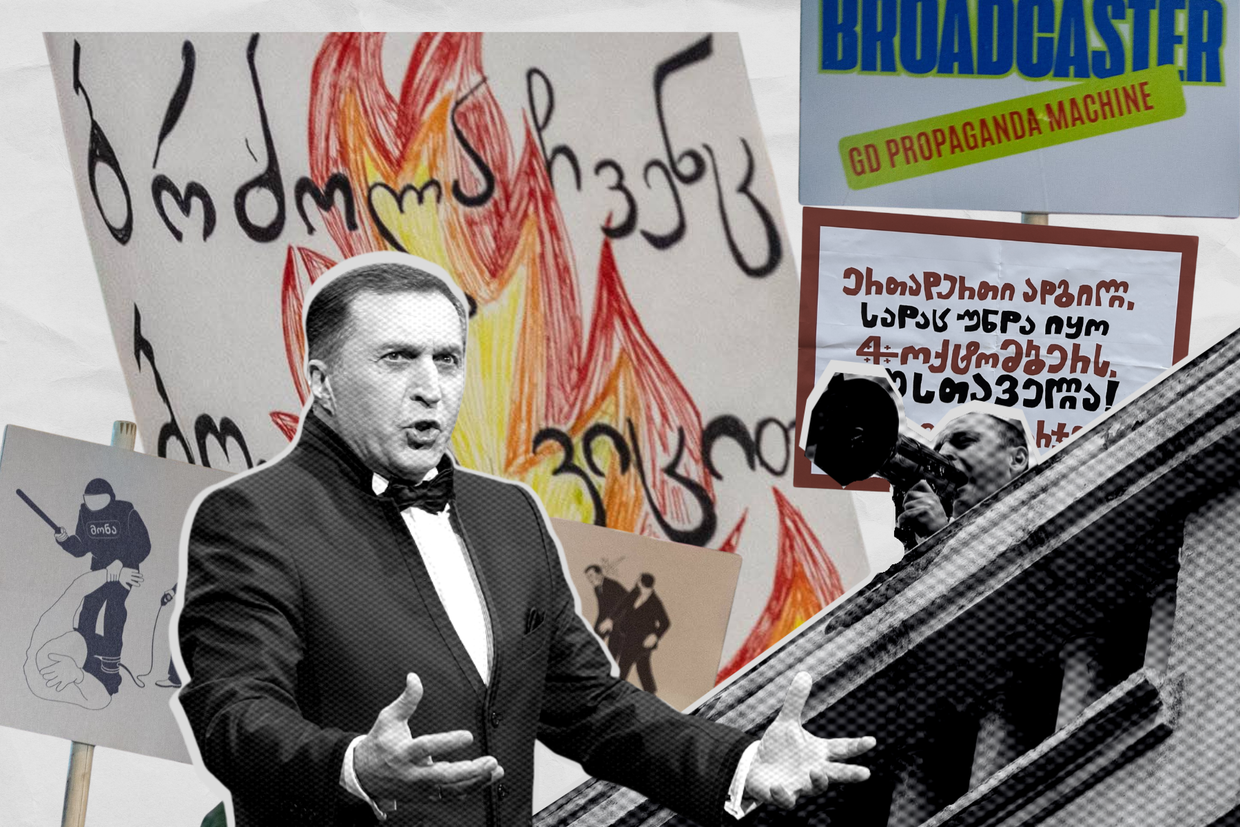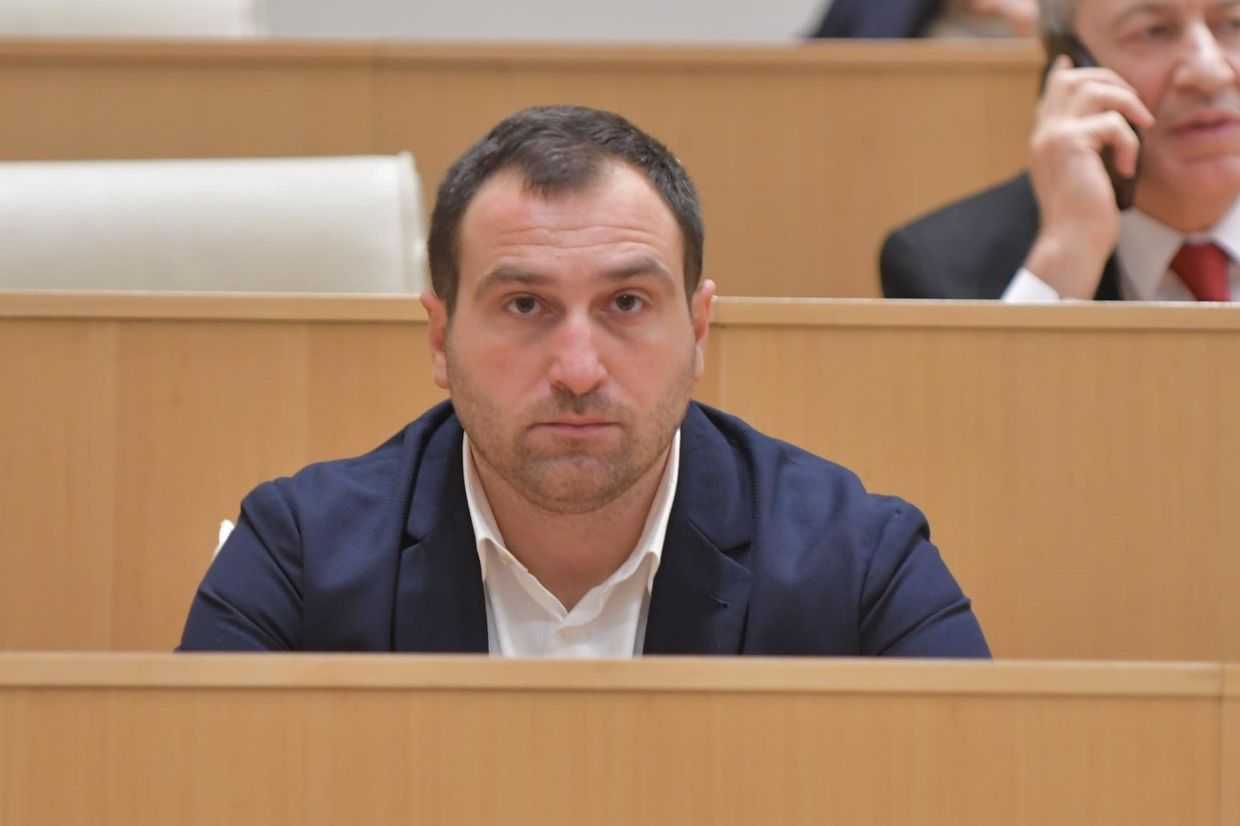
The Parliamentary Assembly of the Council of Europe (PACE) has adopted a resolution condemning government practices that would ‘effectively establish a one-party dictatorship in Georgia’.
The resolution was adopted on Thursday, merely two days before the upcoming local elections on Saturday, which are set to be boycotted by the vast majority of Georgia’s opposition spectrum.
The resolution, titled ‘Uphold democracy and the rule of law in Georgia’, is not dissimilar to an earlier resolution adopted by PACE in April. It invited member states to use ‘interstate applications to the European Court of Human Rights’ in order to ensure that Georgia ‘fully honours all the standards and obligations stemming from its Council of Europe membership’.
According to the resolution, PACE ‘deeply regrets’ that the Georgian Dream government has ‘systematically ignored its concerns and recommendations about the democratic crisis in Georgia’.
It deplores the ‘increasingly isolationist policies and antagonistic relations’ of Georgia with the EU and its member states, and its ‘refusal to co-operate’ with the Venice Commission in preparing its opinions on Georgian legislation.
The assembly additionally expressed concern about reports suggesting that former members of the Georgian PACE delegation risk criminal prosecution ‘for their votes or activities as members of the delegation.
PACE has also dismissed the upcoming local elections, saying it ‘deplores the fact that its calls for an immediate, inclusive process to establish an electoral environment conducive to new, genuinely democratic elections was not implemented, as is evident from the decision by the majority of opposition parties not to participate’. It regretted that the elections will not be observed by civil society organisations ‘with a well-respected track record in election observation’, in addition to criticising the authorities for failing to invite the Council of Europe to observe the elections, and its late invitation to the OSCE/ODIHR’s observation mission.
The assembly has also criticised the government’s failure to investigate human rights abuses against anti-government protesters, and has expressed concern about the Foreign Agent Registration Act (FARA), which targets media and civil society organisations, in addition to other repressive measures adopted by Georgian Dream.
https://oc-media.org/georgian-opposition-activist-arrested-and-stripped-twice-in-detention/
It also expressed ‘serious concerns’ over the government’s intention to ban opposition parties, deploring an anti-opposition parliamentary commission’s conclusions that the formerly ruling United National Movement (UNM) and its affiliated parties should be banned.
‘In the assembly’s view, such banning of the democratic opposition would effectively establish a one-party dictatorship in Georgia, which would be incompatible with Council of Europe membership’, the resolution says.

In the last two articles of the resolution, PACE urged the government to ‘immediately reverse the breakdown of democracy in the country’, recognising that such a move ‘is an issue for all Council of Europe bodies’. As such, PACE urged the Council of Europe to ‘use all available means’ to ‘ensure that Georgia fully honours all the standards and obligations stemming from Council of Europe membership’.
The resolution was met with criticism from senior members of the ruling party, including Prime Minister Irakli Kobakhidze, who on Thursday said ‘these resolutions have no value in the eyes of the Georgian society’.
‘You know our attitude towards the current situation in PACE, and this attitude is reflected in the fact that we have suspended our activities in PACE’, he said in response to a journalist’s question about the resolution.
Georgia froze its participation in the assembly after the body voted to accept the Georgian delegation’s credentials on the condition new parliamentary elections be announced in January.
On Wednesday, Parliamentary speaker Shalva Papuashvili also criticised the resolution before it was adopted, particularly for its criticism of Georgian Dream’s planned constitutional lawsuit against the opposition and its attitude towards imprisoned former President Mikheil Saakashvili.
‘As for the constitutional lawsuit against the [UNM], well, what do they want? Is Europe calling a torturer a politician? Let me remind you, this is the PACE that adopted a resolution and called Mikheil Saakashvili a “political prisoner”, so their moral standard is much lower than that of Georgian statehood and Georgian values’.
‘As for the draft itself, I’ve read it and it’s a miracle that all the paragraphs are lies. This also requires skill. We can go through each paragraph and all paragraphs are either manipulations or ordinary lies’, Papuashvili said.











